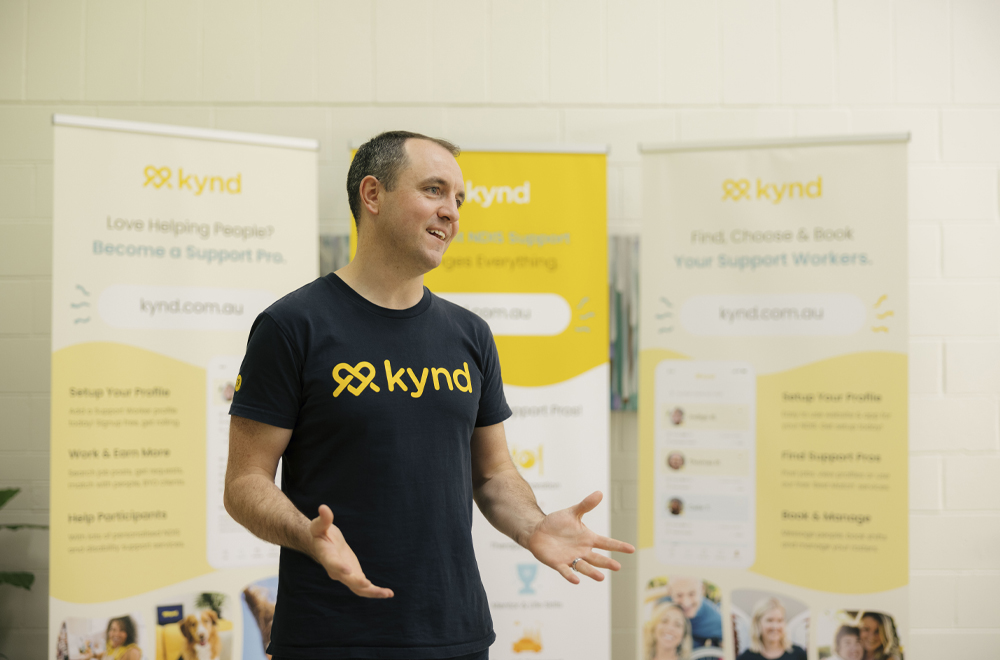Queensland-based disability support service platform Kynd has secured $2million in financial backing from family company Gandel Invest and health tech and Shark Tank investor, Glen Richards.
Kynd’s website and app helps match “the right NDIS participants with the right support workers” based on a range of personalised preferences.
Kynd founder Michael Metcalfe, pictured, encountered what he described as “shortfalls and frustrations” of the disability and care sector when his mother needed short term support for a medical emergency years ago.
“The experiences of family and friends opened my eyes. I learned disability services were complex,” he said. “Within 10 years, we will see a fundamentally different disability sector across Australia.
“Almost 50 percent of people on the NDIS are under 25. We can order pizzas and taxis in three clicks, so why can’t everyone find the right people to help their life? That’s where we come in. Kynd connects people in minutes, not months.”
And he said the big wave of change is still coming.
With a platform tailor-made for the NDIS, Kynd has seen a 335 per cent user growth in the last six months, forecast to grow six to eight times in the next three years. And for the NDIS to reach its full potential and become cost sustainable, more services, providers and the National Disability Insurance Agency must become technology led.
“Our technology can scale and deliver a truly personalised alternative to traditional services, while enabling NDIS participants and support workers to build capability. I saw a need for helpful technology and a human approach, so I figured, let’s build a better experience.”
One in five Australians has a disability with many unable to access the help they need, due to a dire shortage of support workers through traditional methods.
“The NDIS is a large and highly fragmented market with NDIS figures showing there’s been an 11 per cent increase in children participating in community and social activities, a 12 per cent increase in NDIS participants working in a paid job and 6 per cent reduction in hospital visits in the last three years,” he said.
According to Metcalfe, support workers are also driving change in the industry. Wanting more control and flexibility in the services they provide, when they work and who they support, with a continuing shift to independent support work.
“We’ve seen huge changes in the way people are accessing the NDIS with people embracing the benefits of tech-orientated solutions, but the reality is tech solutions in the market are still only about five per cent.”

